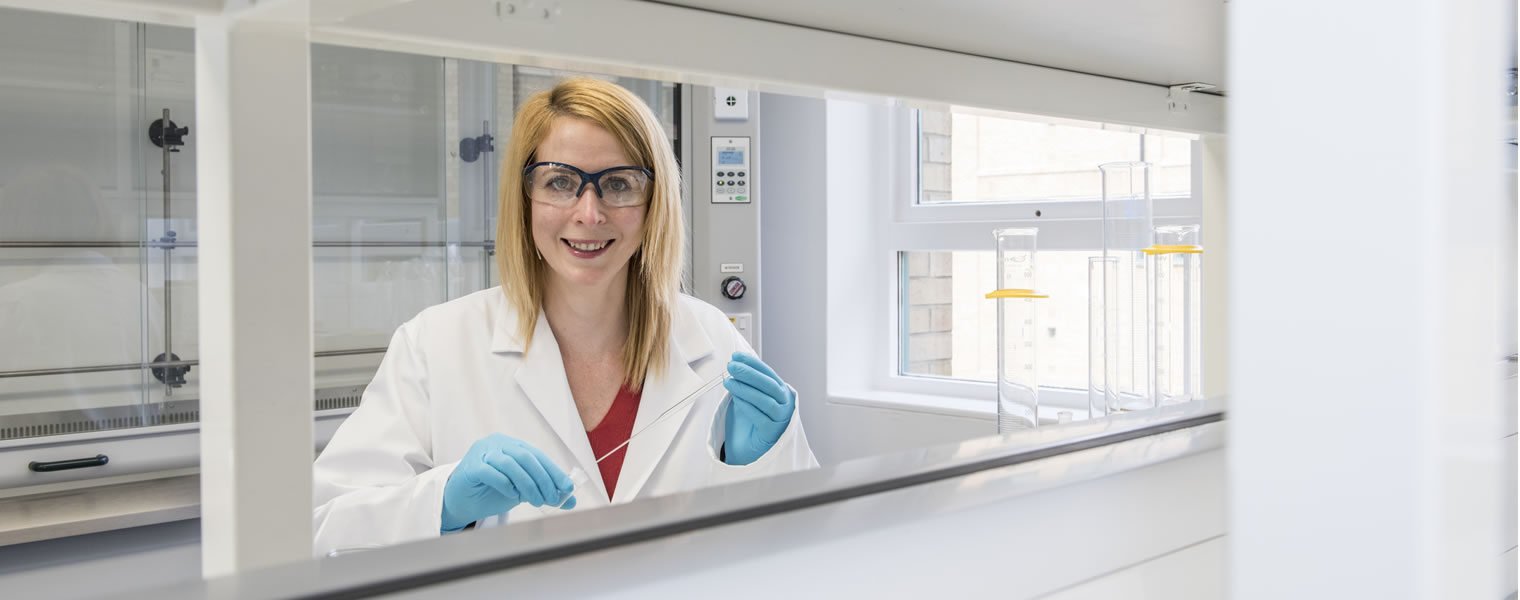Hartley News Online Your alumni and supporter magazine
Researchers in Ocean and Earth Science at Southampton are posing the question: “Can we gain insights into the environmental consequences of modern climate change and global warming from the geological record of a mass extinction event that took place more than two hundred million years ago? This end-Triassic event wiped out much of the planet’s animal and plant life, led to the development of modern ecosystems on land and in the oceans, and paved the way for the dominance of the dinosaurs.
The Carbon Flux project will bring together life sciences researchers from across the University to collaborate on a wide range of carbon-related projects, including exploring the parallels between ancient climate change, such as the end-Triassic event, and today’s carbon use, in a quest for lessons that inform our future. They will also be documenting the effect of carbon cycling on our past, present and future, to help predict the effects humans will have on the living ecosystems that we are so tightly bound to.
The project is led by Dr Jessica Whiteside, who is exploring the potential causes of mass extinctions and catastrophic climatic events in our past. She explains: “The flow of carbon through the environment is important to help us understand the ecology and evolution of life on earth. If we can understand the behaviour of carbon in the environment and relate it to the atmosphere, pollution of biospheres, the recovery of energy resources, the regulation of the Earth’s past and present climate, and the evolution of life, this can help us predict what we might expect for present or future scenarios.”
The interdisciplinary Carbon Flux Project involves researchers from across the University including Archaeology, Biological Sciences, Civil Engineering, Chemistry, Electronics and Computer Science, Geography, Medicine, Ocean and Earth Sciences, the Optoelectronics Research Centre, and the Southampton Marine and Maritime Institute.
Alongside this, work is underway to extend laboratory space at the National Oceanography Centre Southampton (NOCS), to house new analytical instrumentation equipment for the Geochemistry Group. The refurbishment work is taking place to make room for a second mass spectrometer. The existing Neptune instrument has been heavily utilised by researchers from the University, NOCS and other universities and organisations worldwide. It is used for research across a wide range of areas, including Earth sciences, archaeology, medical research and environmental studies.
Head of the Geochemistry Group, Professor Martin Palmer, says: “We’re greatly looking forward to the new lab space and the installation of the new instrument. We’ve recently had a number of grants funded from the Natural Environment Research Council and the European Community that have a large analytical component, so this will give us the opportunity to spread the load across both instruments as well as giving us greater capacity to work on future projects. We are also very interested in offering industrial partners the opportunity to access our high quality analytical services to the wider benefit of the UK economy.”
The new instrument has been funded by the University and the Natural Environment Research Council (NERC) and was installed in October.
This world-changing interdisciplinary research work is set to be supported by the launch of a new Southampton Environmental Carbon – Training, Observation and Research (SECTOR) Initiative. SECTOR will stimulate new research connections across different campuses into the behaviour of carbon in the environment, enabling new collaborative research focusing on natural systems; resources, energy and public health; and technology and enterprise.
Jessica said: “Nowadays most scientific research has evolved from being being headed by an individual researcher or lab to being pursued by multifaceted teams. The IfLS enables us to forge stronger working partnerships across the University, acting as a catalyst to link different areas of research and allowing us to grow together. This concept of interdisciplinary working is really embodied by the University as no one person has overall expertise in any particular area and we all need to work together to solve the really important questions we are facing today dealing with global warming and what it may hold for our future.”
To find out more visit: www.southampton.ac.uk/ifls/globalchange
